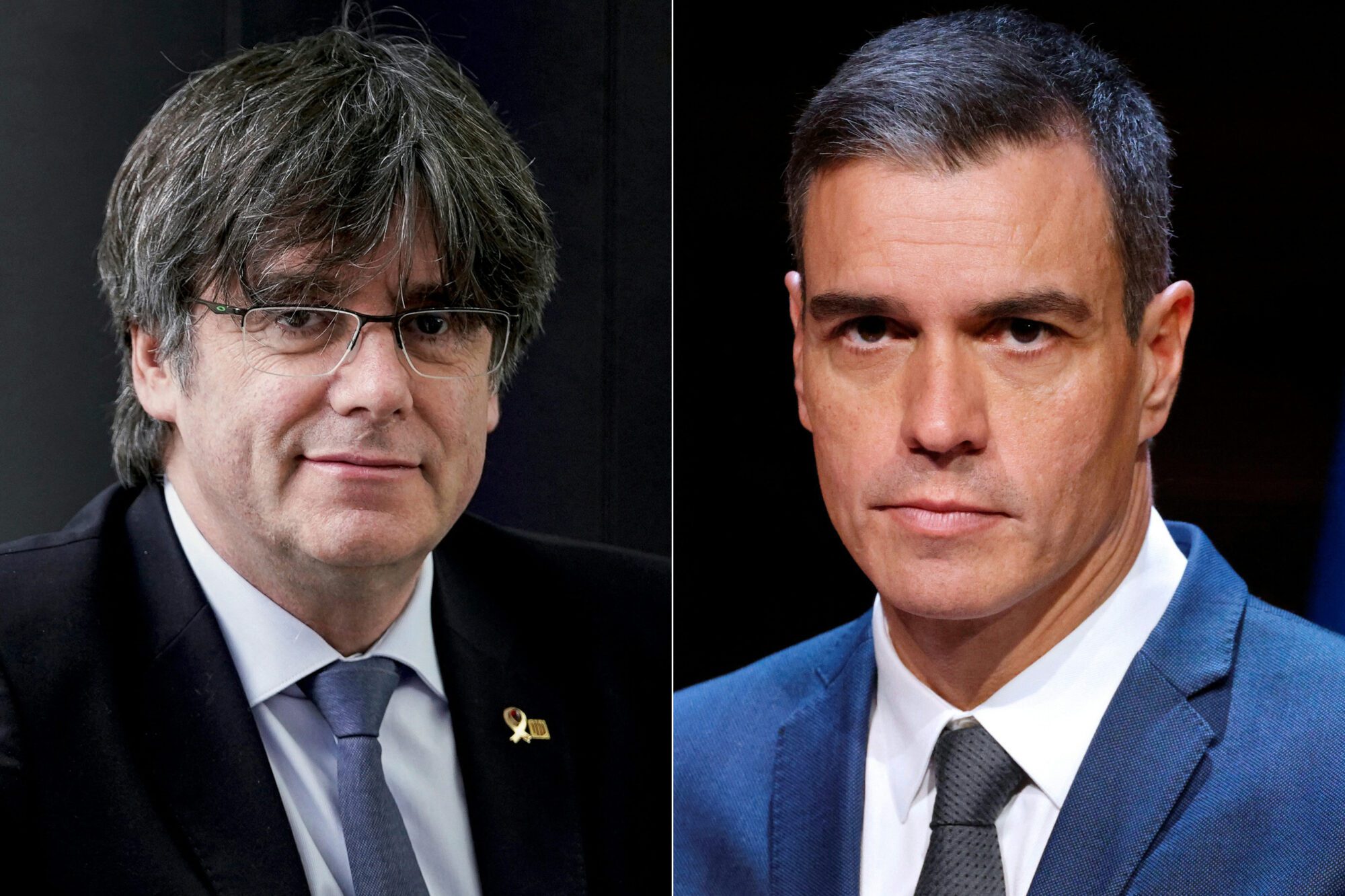
Photo by Kenzo TRIBOUILLARD and Ludovic MARIN / AFP
Spain’s acting Prime Minister Pedro Sánchez is one step closer to clinching another four years at the helm of his country’s government.
His socialist party PSOE announced on Thursday morning that it had reached an agreement with the Catalan-separatist party Junts per Catalunya that would give the party’s seven votes in congress to Sánchez. The agreement has been much anticipated as it includes the Catalans’ demand for an amnesty for leaders of the 2017 illegal referendum, headed by MEP Carles Puigdemont, a fugitive of Spanish justice and president of Junts per Catalunya.
But the agreement on a pardon for separatists goes much, much further to include not only the people and transgressions directly related to the illegal referendum, which Puigdemont led in his then position as Catalonia’s regional president, but also extends to to crimes of violence, corruption, and drug dealing by those within the separatist circle. The EU Commission has also sent Sánchez, currently in the rotating presidency of the EU, a stern warning that his plans seriously transgress the rule of law.
During a press conference on Thursday morning in Brussels, where he had been meeting Puigdemont, the organizational secretary of the PSOE, Santos Cerdán, assured that it is “an agreement that constitutes a historic opportunity to resolve a conflict that only from politics can and should be resolved.”
The reality on the ground in Spain says otherwise. Protests against any amnesty have erupted in cities across the country in the last several days with more planned for the coming weeks.
Now protestors will have more to complain about as well, since the details of the agreement have come to light.
Besides a pardon of the charges related directly to the referendum–whether already prosecuted or outstanding as in the case of Puigdemont–the agreement includes, for example, the case Gonzalo Boye, Puigdemont’s lawyer. He is facing charges of money laundering related to drug trafficking for Sito Miñanco, one of Spain’s best-known drug traffickers. Also referenced in the agreement is Marta Rovira, a politician with Esquerra Republicana, the left-wing Catalan separatist party, who is accused of terrorism in conjunction with the activist groups Tsunami Democratic and the Comité en Defensa de Catalunya. Puigdemont has been charged with terrorism in the same case as Rovira. Also included is a straightforward case of corruption by another Catalan politician close to Pugdemont.
All of these–both charges and convictions–are, in theory, to be wiped away by the Spanish legislature in an amnesty law. In general, the move has at best questionable constitutional legitimacy and no social necessity except for keeping Sánchez in office. But the inclusion of a wide set of crimes, even money laundering for a drug lord, makes it much more complicated and illegitimate.
Indeed the accord itself recognises the delicacy of the operation and that a blanket amnesty may not be possible. In the case of Boye, for example, it speaks of lowering his charges.
But the reality is that the agreement may still go nowhere. Sánchez still needs to seal the support of the Basque Nationalist Party (PNV) with its five votes. The party passed up a chance for an agreement with the center-right Partido Popular, but every nationalist faction is vying to be kingmaker, or unmaker.
Additionally, EU justice commissioner Didier Reynders sent Sánchez a public letter, warning him that he risked falling far afoul of the rule of law and asking for details on the amnesty law. Sánchez spokesperson Felix Bolaños replied that as yet there was nothing to send to the commission. Besides, he added, what possible democratic problem could there be as the law was being decided democratically in the Spanish parliament. Reynders responded in a later press conference that he and the rest of the commission were still expecting a detailed explanation.
The agreement also includes allowing another independence referendum in Catalonia and forgiving the 15 million euros of the region’s debt to the national government, or, in other words, to the rest of Spain.
